Validity of Marriages Conducted in Ikeja, Abuja and other Federal Marriage Registries in Nigeria.
By Onyekachi Umah, Esq. (Tip 105)
As it is in law books, there are recent judgements declaring that the Federal government has no powers to run a marriage registry like it is doing in Lagos, Abuja and may be other parts of Nigeria. So are marriages conducted and registered in the marriage registries operated by the federal government instead of in Marriage Registries at Local Government Areas, valid?
The Constitution of Nigeria allows only the federal legislature to make federal laws on marriages, except islamic and customary marriages. Hence, no state or local government in Nigeria can make any law on marriage (except islamic and customary marriages) in any part of Nigeria. On this foundation, there is a federal law (the Marriage Act, 1914) which oversees formation of marriages and licenses associated with marriages, except islamic and customary marriages. Presently, there are Marriage Registries in setup by the Federal Government of Nigeria and also, Marriage Registries in the Local Government Areas across Nigeria. At some point, it was argued that the Federal Government should only regulate marriages and should not run Marriage Registries, like Local Governments.
Expectedly, over the years, the Nigerian courts have reiterated the position of the law on whether the Federal Government should conduct and register marriages. In the case of EGOR LOCAL GOVERNMENT, EDO STATE & ORS Vs. HON MINISTER OF INTERIOR & ORS (Suit No: FHC/L/ CS/1760/16), the Federal High Court emphasised that the Federal Government (the Federal Minister of Interior) can conduct marriage, just like the Local Governments do. However, unlike the Local Governments, the Federal Government cannot register marriages. Registration of marriages is the exclusive powers of the Registrar of Marriages in the various Local Government Areas across Nigeria. This position is inline with any earlier decision of the Federal High Court in the case of HAASTRUP & ANOR v. ETI OSA LOCAL GOVERNMENT & 2 ORS (FHC/L/870/2002).
Hence, although the Federal Government regulates marriages in Nigeria (except islamic and customary marriages) and issues licenses to all stakeholders (operators of licensed place of worship, Local Governments and its agents), the Federal Government and the Local Governments can conduct marriages, but only the Local Government can register marriages and issue certificates of marriage. So, aside the regulation of marriage processes, the federal government and its federal marriage registries cannot register marriages, but can be used like licensed places of worship for the celebration of marriages. All marriages must still be registered at a Marriage Registry in the Local Government and then, may be celebrated in a licensed place of worship or the Federal Marriage Registry or any other licensed place.
There are only for four (4) factors or situations that can make a marriage conducted under the Marriage Act (Section 33[2]) to be invalid, but above all, the spouses (husband and wife of the marriage), MUST be aware of the presence of such factors before the marriage. The existence of such factors and the “knowingly and wilfully” decision of the spouses to proceed with the marriage is germane in declaring a marriage invalid. The four (4) factors that can make a marriage invalid, are; the Unlicensed Venue Factor, the False Name Factor, the Defective Process Factor and the Unrecognised Clergy Factor. It appears that a marriage in the Federal Marriage Registries may be affected by one (1) of the factors.
Arguably, if the Federal Marriage Registries have no powers to register marriages, then initiating marriages in such places will be affected by the Defective Process Factor (DPF). A proper marriage process commences with notification in the office of the Registrar of Marriages in the Local Governments or in any other place with the license from the Minister of Interior. So, commencing a marriage in the Federal Registries means omitting the lawful processes and could be a good reason for a court to hold a marriage invalid. An exception for marriages initiated and completed in the Federal Marriage Registries will be where there is a proof that the Federal Minister for Interior issued a licensed to the concerned parties (spouses) to initiate their marriage process at the Federal Marriage Registries, instead of at the office of a Marriage Registrar in a Local Government.
By the provisions of section (33)(2)(a) of the Marriage Act, any marriage conducted outside the Marriage Registry of a Local Government, or licensed places of worship or any other place licensed by the Minister of Interior is INVALID, where the spouses were aware that such place is unlicensed. Unless it is determined that a Federal Marriage Registry is licensed place for celebration of marriage, then, marriages conducted therein may be held invalid. However, it appears that the judgments in EGOR LOCAL GOVERNMENT, EDO STATE & ORS Vs. HON MINISTER OF INTERIOR & ORS (Suit No: FHC/L/ CS/1760/16) and HAASTRUP & ANOR v. ETI OSA LOCAL GOVERNMENT & 2 ORS (FHC/L/870/2002) concluded that the Federal Marriage Registries are licensed for celebration of marriages (although not for registration of marriages). Well, investigating the process for the establishment of the Federal Marriage Registries may be an issue that may reveal that the process in section 13 of the Marriage Act for licensing of places of celebration of marriages are never adhered to by the federal marriage registries.
In conclusion, the Federal Government of Nigeria, through the Marriage Act regulates the formation of marriages and the role of all stakeholders, including the Federal Minister of Interior and the Local Governments. By the Marriage Act, the Federal Minister of Interior can conduct marriages, licenses places for celebration of marriages and play other supervisory role. However, unlike the Local Governments Areas and their Marriage Registries that can conduct marriage and register such marriages, the Federal Marriage Registries and the Federal Minister of Interior cannot register marriages. The conduct of marriages in the Federal Marriage Registries without a recourse to the Marriage Registries in the Local Governments and without any license from the Federal Minister of Interior could make the marriage invalid, where the parties knowingly did such.
Authorities:
- Sections 1, 2, 3,4, 5, 6 and 7(5) of the Constitution of the Federal Republic of Nigeria, 1999.
- Sections 30 (1) and 33 (2) of the Marriage Act, 1914
- Judgment of the Federal High Court in the case of EGOR LOCAL GOVERNMENT, EDO STATE & ORS Vs. HON MINISTER OF INTERIOR & ORS (Suit No: FHC/L/ CS/1760/16)
- Judgment of the Federal High Court in the case of HAASTRUP & ANOR v. ETI OSA LOCAL GOVERNMENT & 2 ORS (FHC/L/870/2002)
- Judgment of the Federal High Court in the case of Olumide Babalola V. Ikeja Local Government & ANR [Suit NO. LD/1343GCM/16]
****************************************************************************************
This work is published under the free legal awareness project of Sabi Law Foundation (www.SabiLaw.org) funded by the law firm of Bezaleel Chambers International (www.BezaleelChambers.com). The writer was not paid or charged any publishing fee. You too can support the legal awareness projects and programs of Sabi Law Foundation by donating to us. Donate here and get our unique appreciation certificate or memento.
DISCLAIMER:
This publication is not a piece of legal advice. The opinion expressed in this publication is that of the author(s) and not necessarily the opinion of our organisation, staff and partners.
PROJECTS:
🛒 Take short courses, get samples/precedents and learn your rights at www.SabiLaw.org
🎯 Publish your legal articles for FREE by sending to: eve@sabilaw.org
🎁 Receive our free Daily Law Tips & other publications via our website and social media accounts or join our free whatsapp group: Daily Law Tips Group 5
KEEP IN TOUCH:
Get updates on all the free legal awareness projects of Sabi Law (#SabiLaw) and its partners, via:
YouTube: SabiLaw
Twitter: @Sabi_Law
Facebook page: SabiLaw
Instagram: @SabiLaw.org_
WhatsApp Group: Free Daily Law Tips Group 5
Telegram Group: Free Daily Law Tips Group
Facebook group: SabiLaw
Email: lisa@sabilaw.org
Website: www.SabiLaw.org
ABOUT US & OUR PARTNERS:
This publication is the initiative of the Sabi Law Foundation (www.SabiLaw.org) funded by the law firm of Bezaleel Chambers International (www.BezaleelChambers.com). Sabi Law Foundation is a Not-For-Profit and Non-Governmental Legal Awareness Organization based in Nigeria. It is the first of its kind and has been promoting free legal awareness since 2010.
DONATION & SPONSORSHIP:
As a registered not-for-profit and non-governmental organisation, Sabi Law Foundation relies on donations and sponsorships to promote free legal awareness across Nigeria and the world. With a vast followership across the globe, your donations will assist us to increase legal awareness, improve access to justice, reduce common legal disputes and crimes in Nigeria. Make your donations to us here or contact us for sponsorship and partnership, via: lisa@SabiLaw.org or +234 903 913 1200.
***********************************************************************************


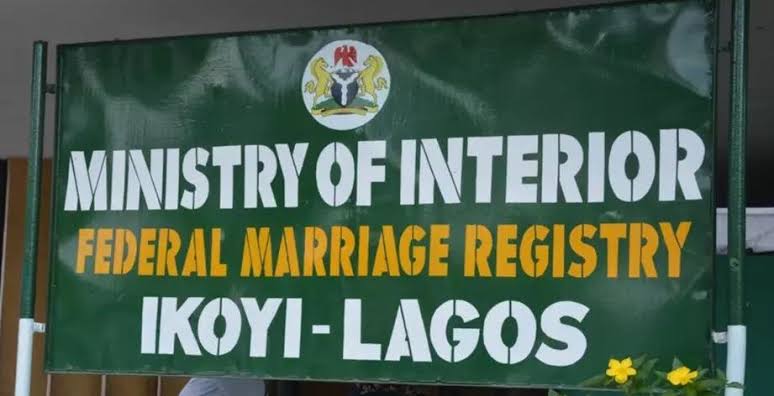









































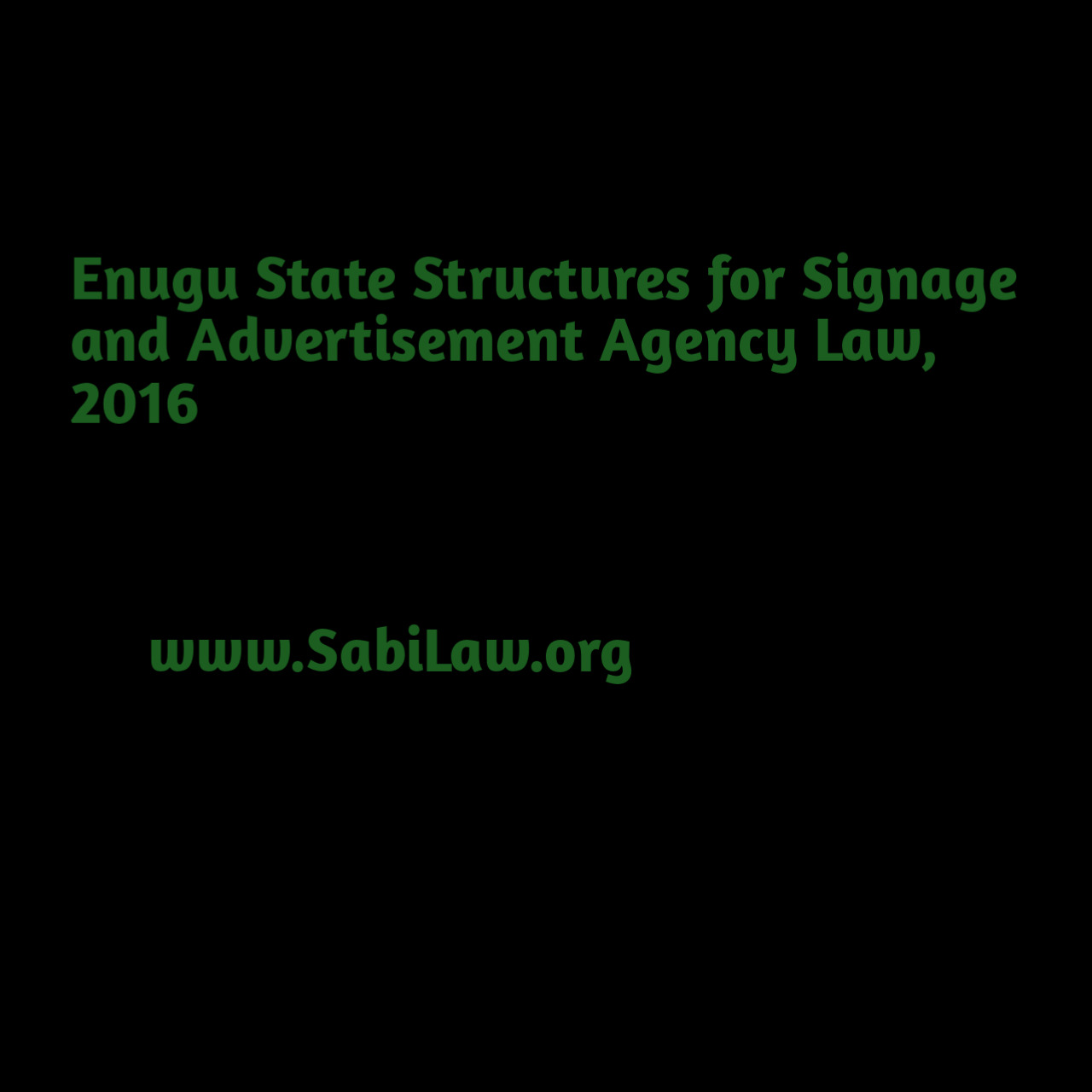
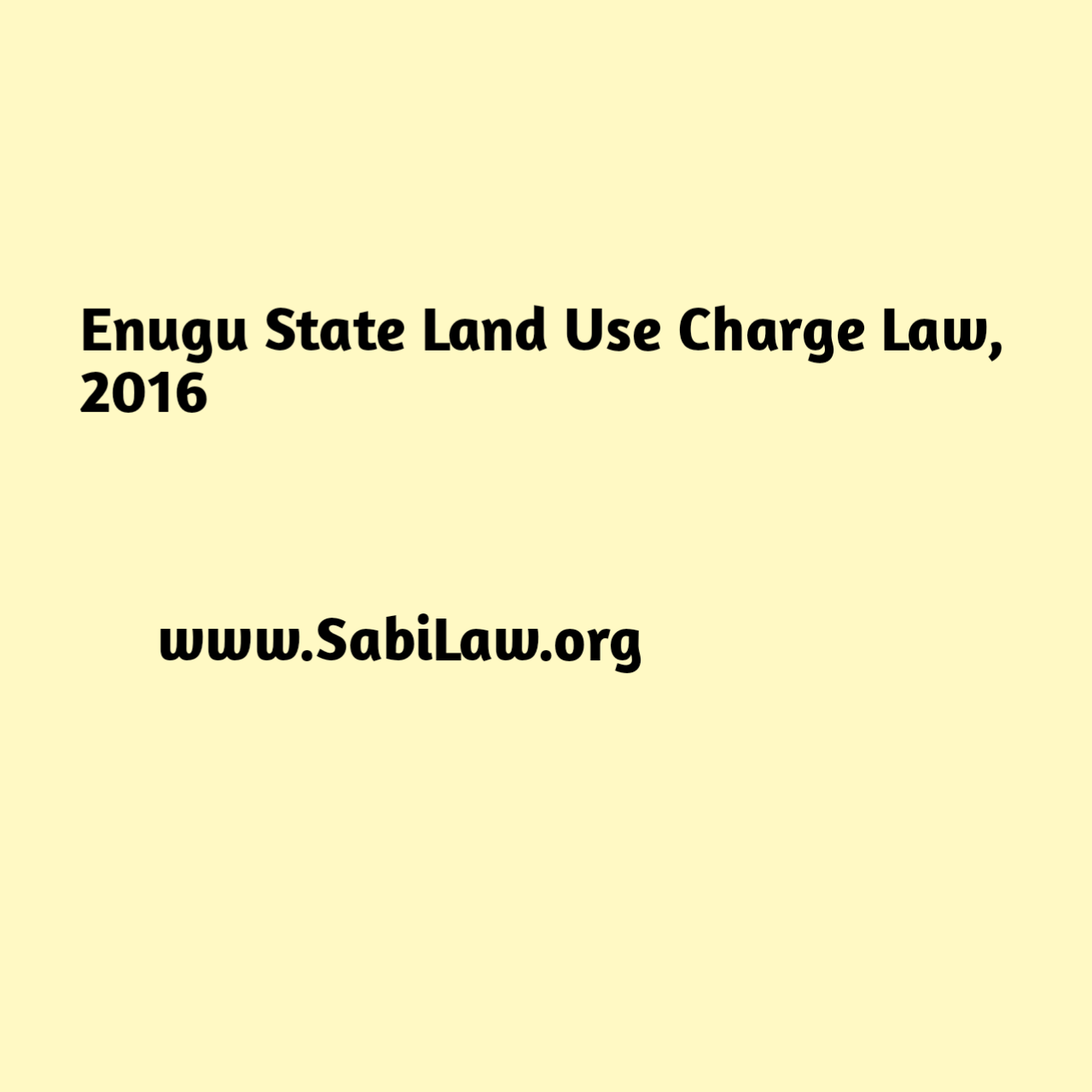
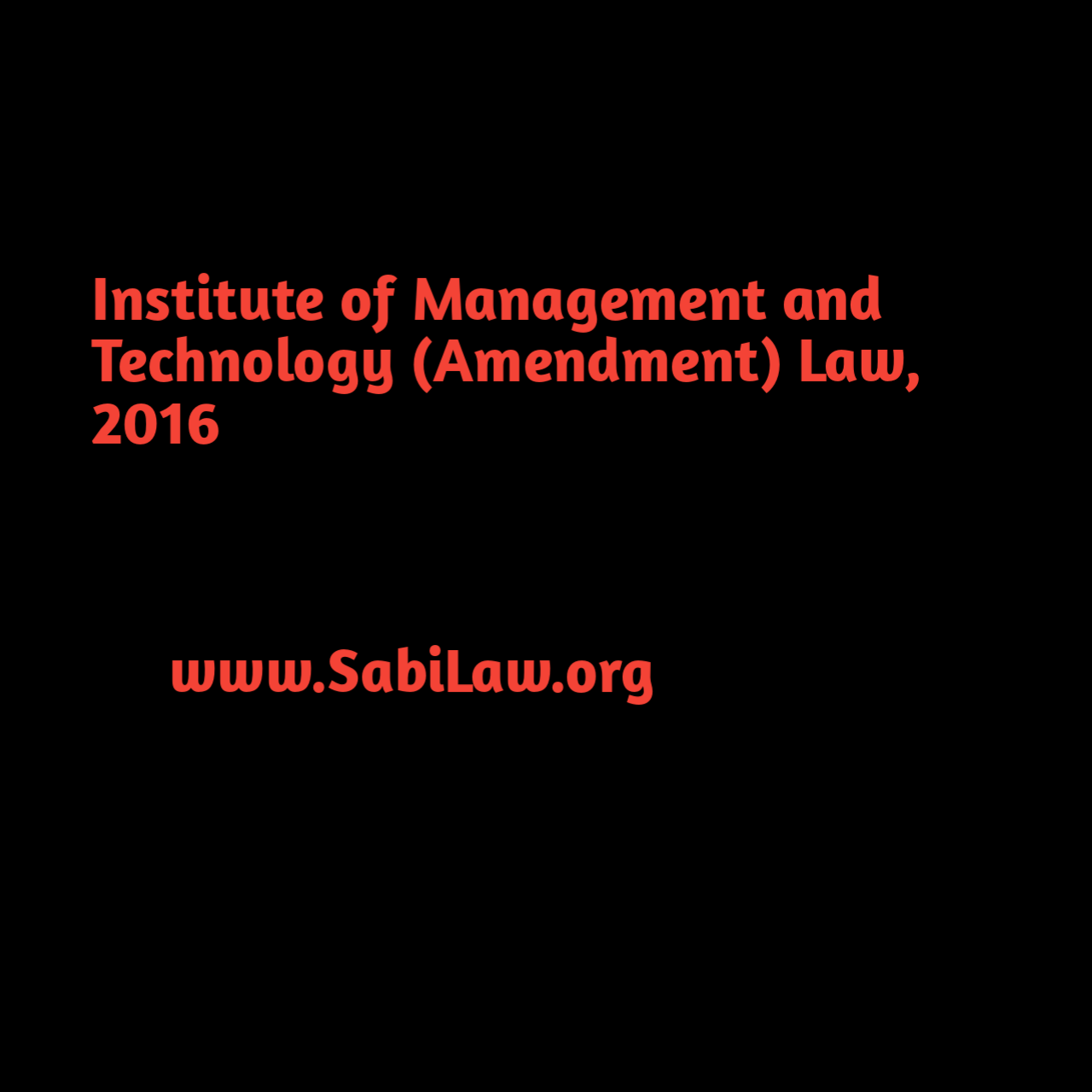
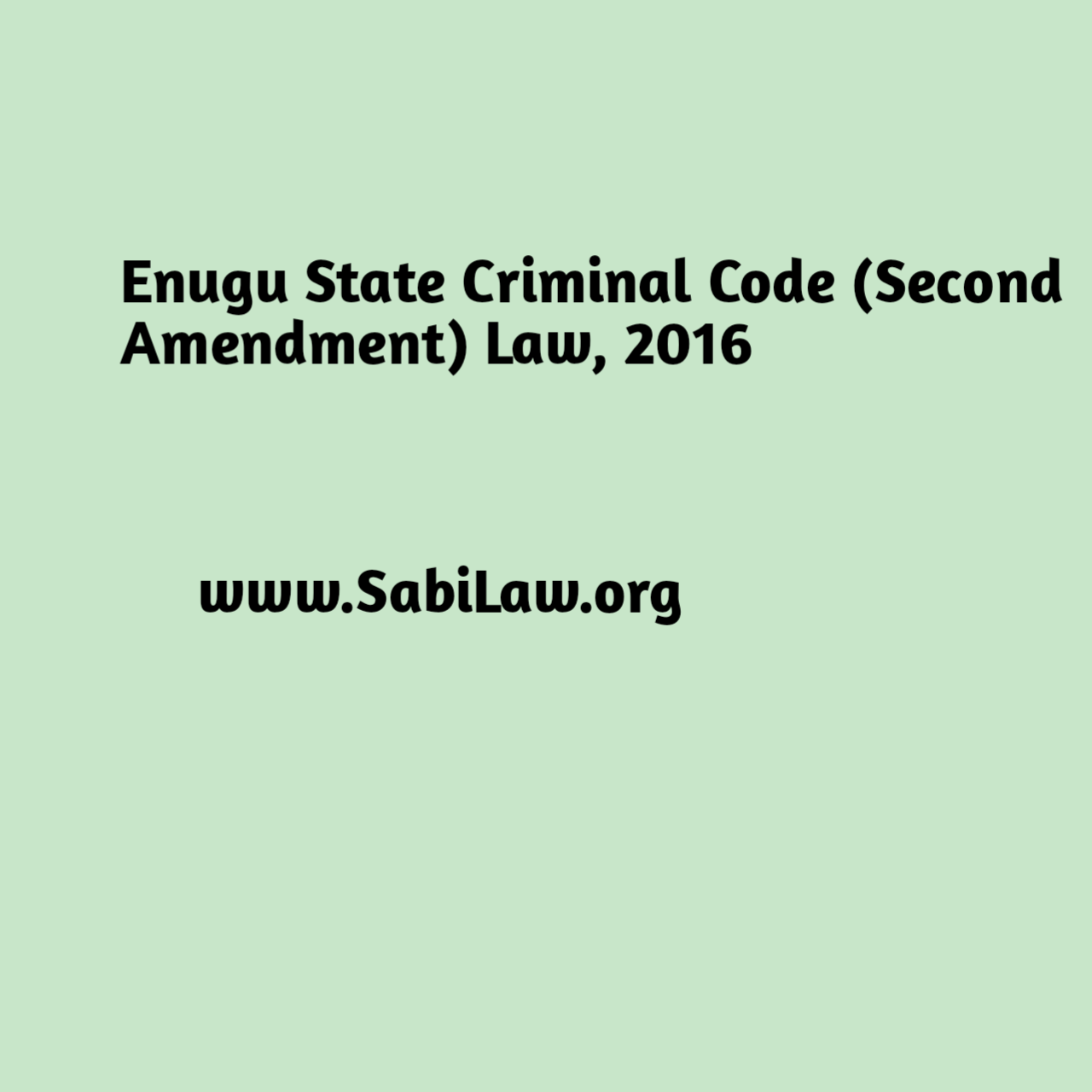
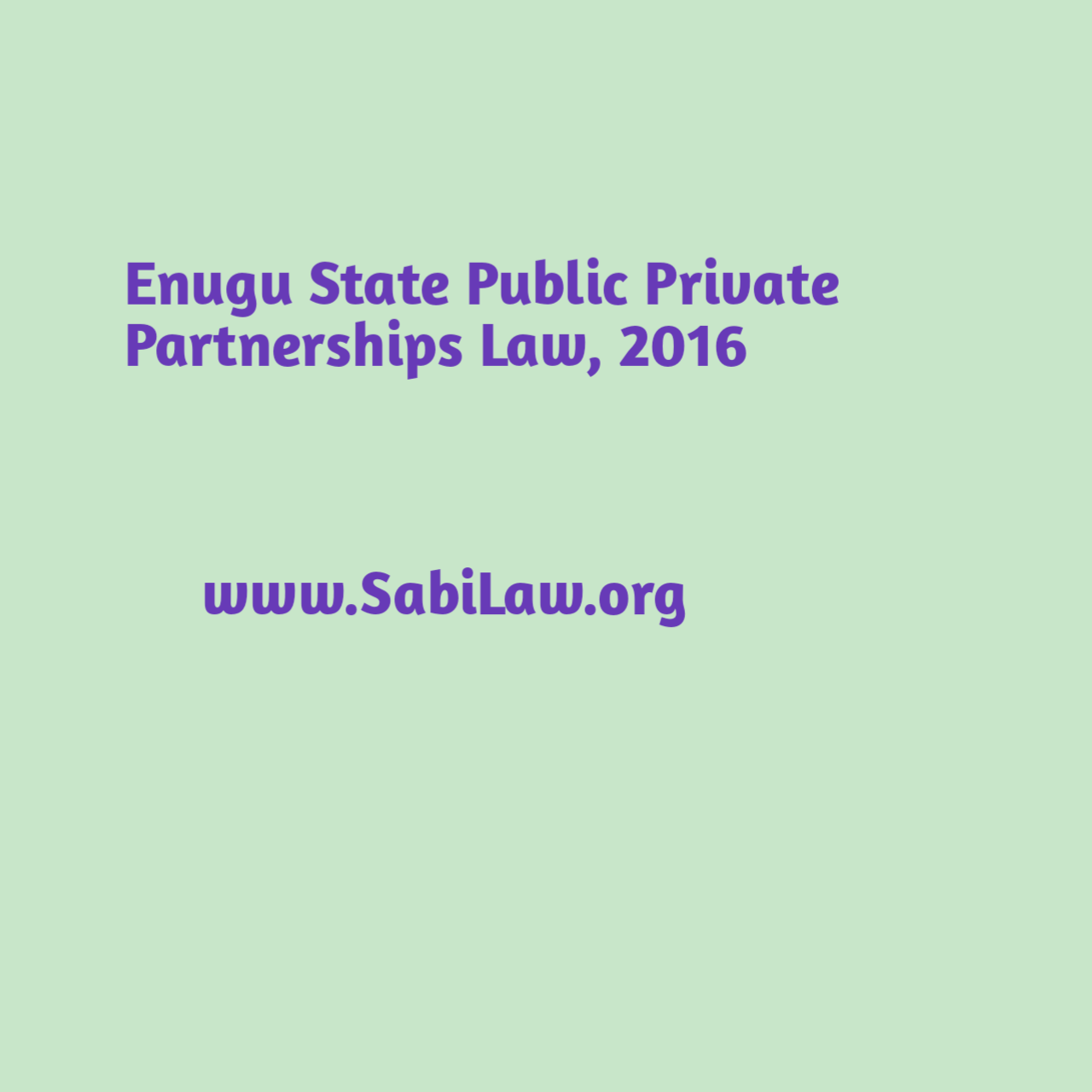
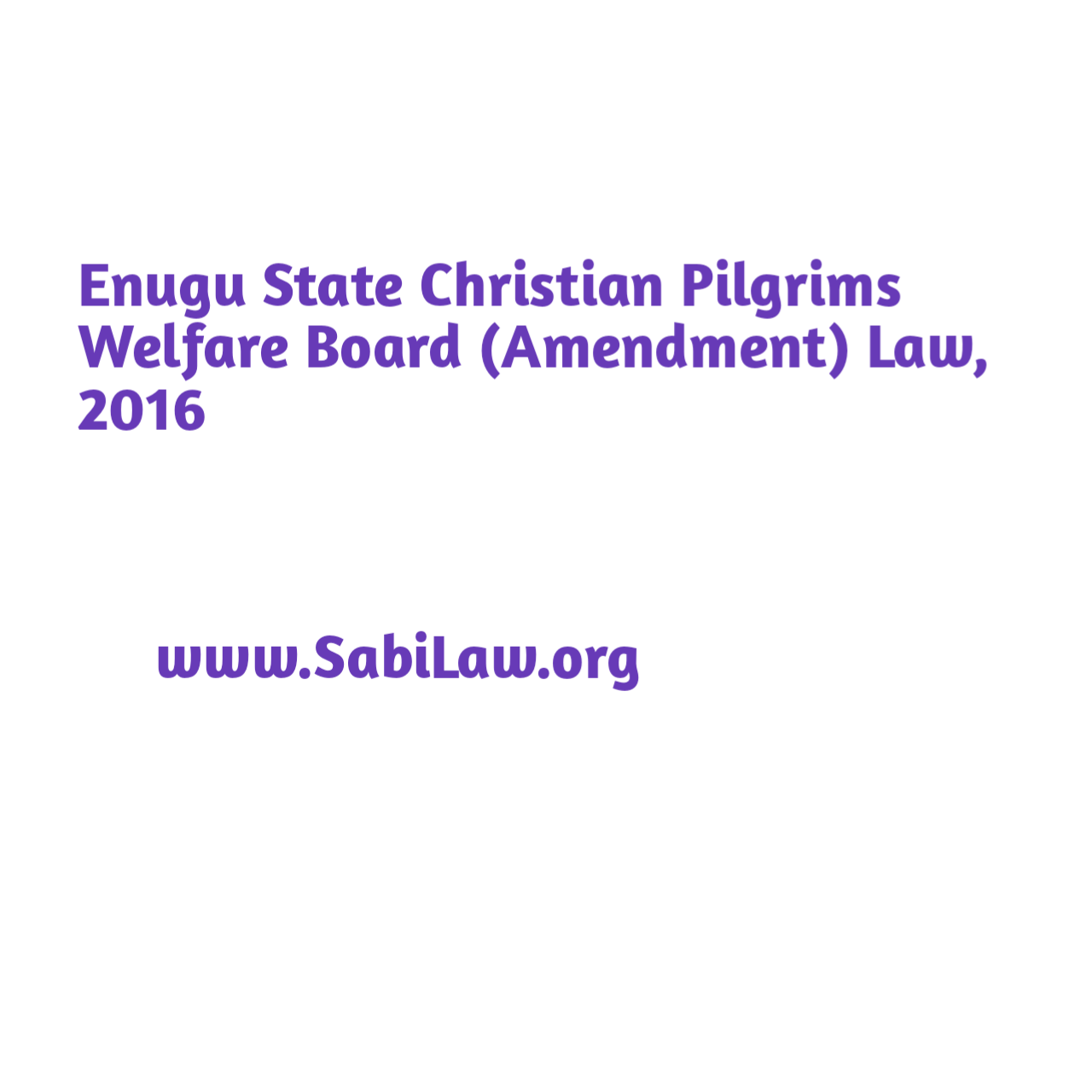
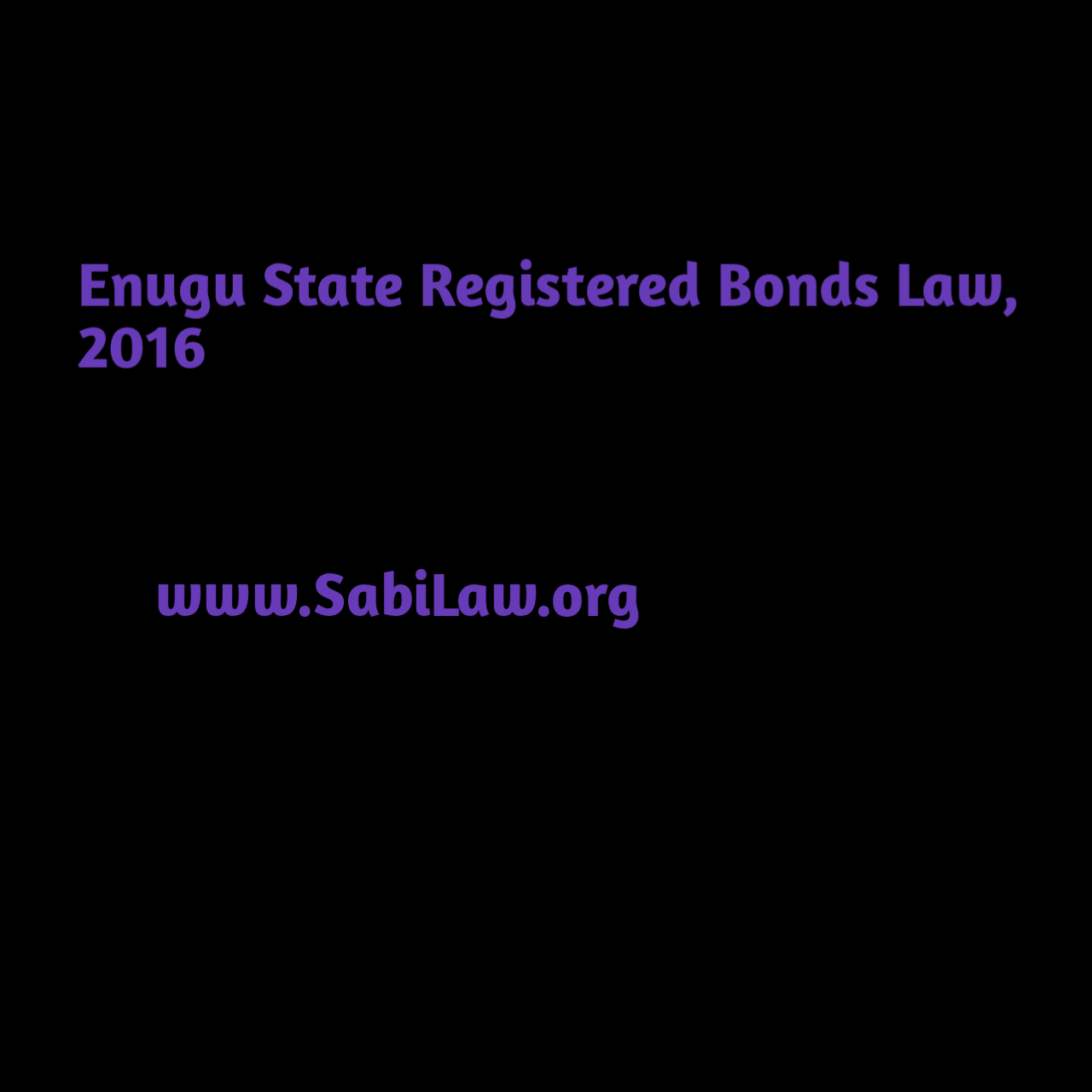
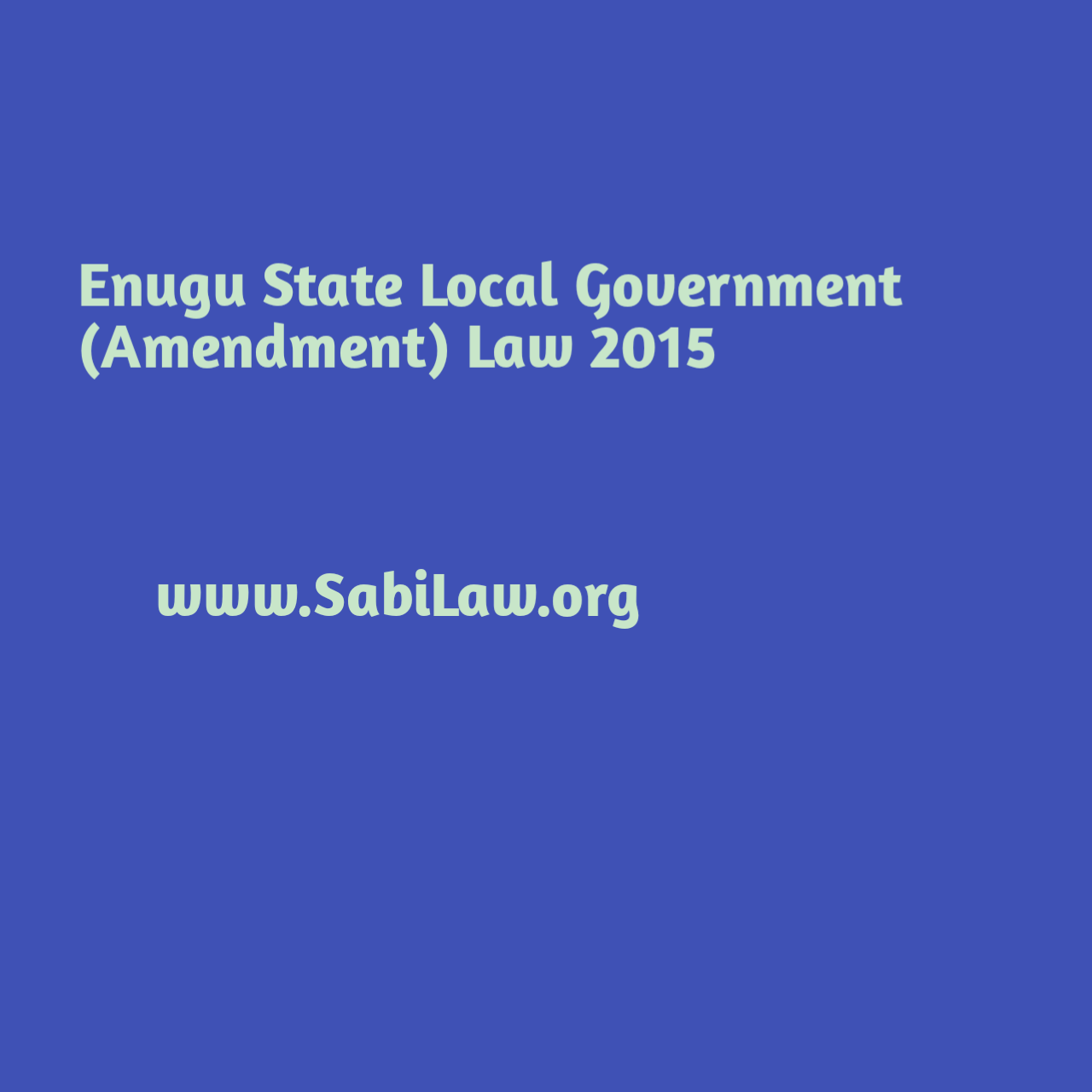
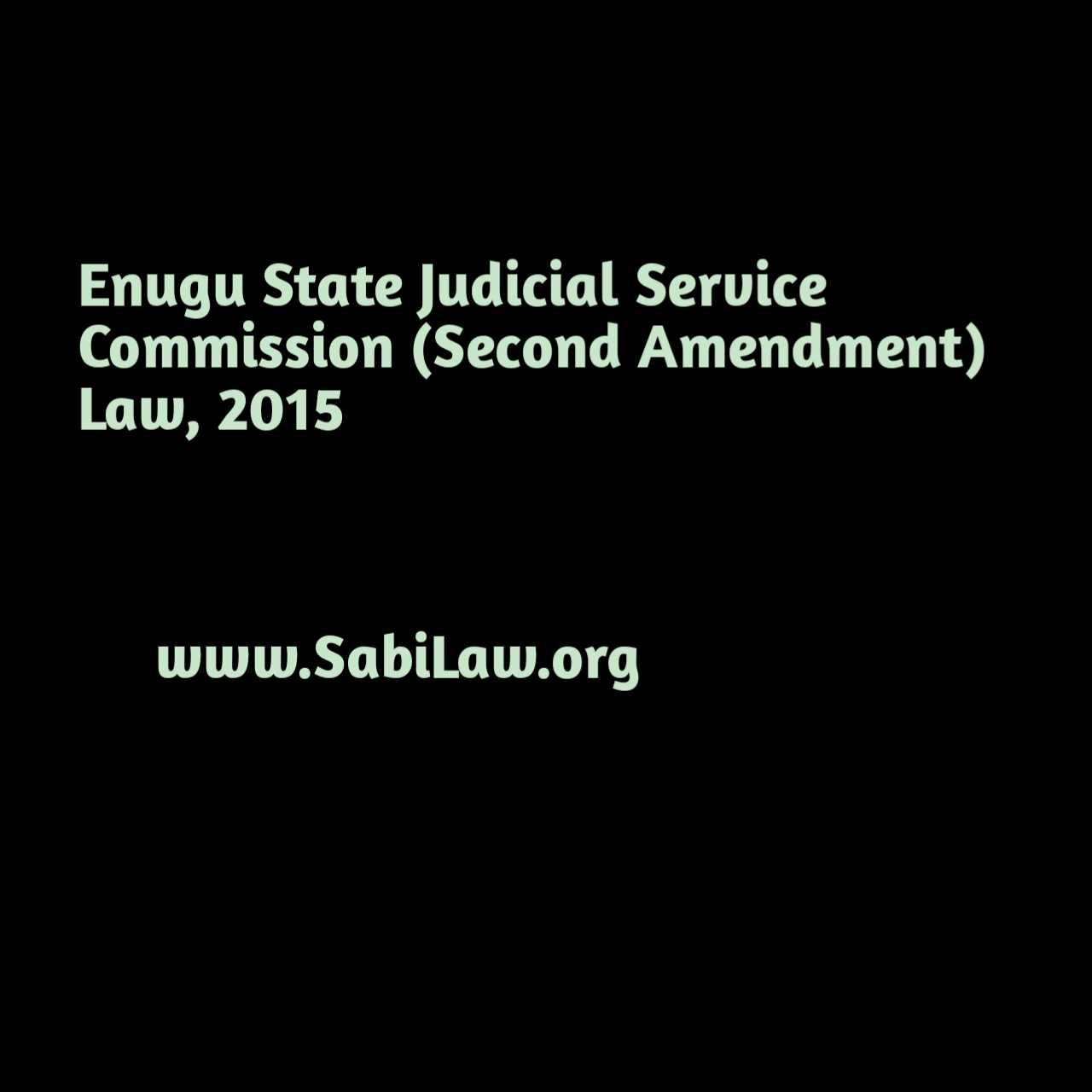
5 Responses